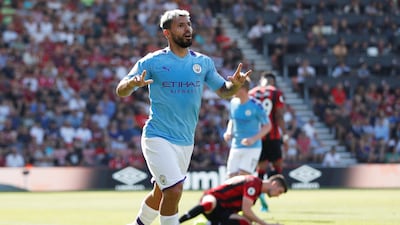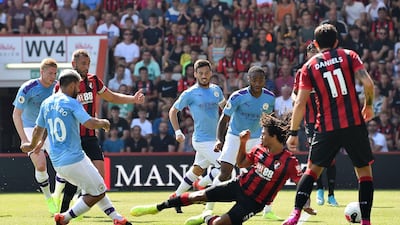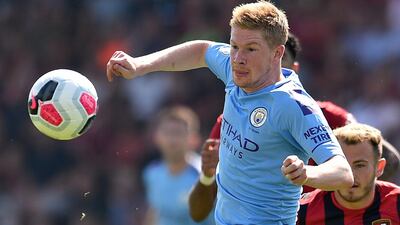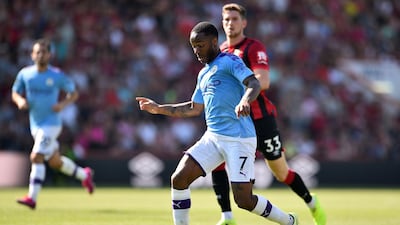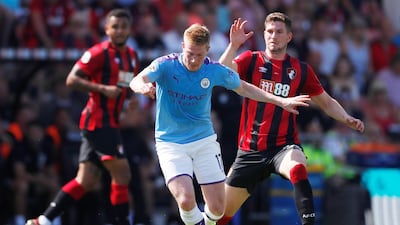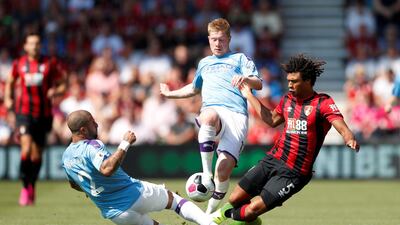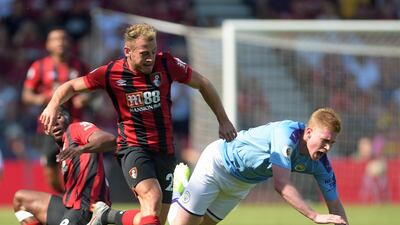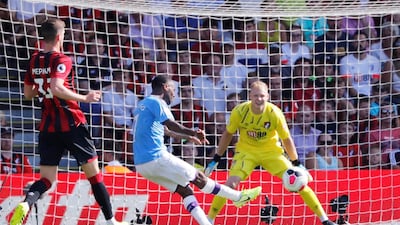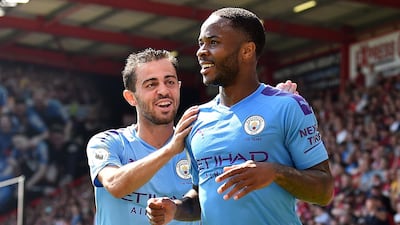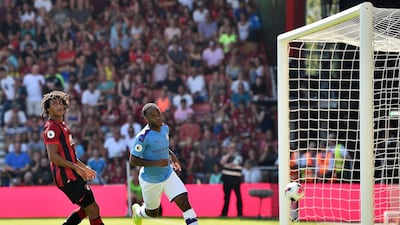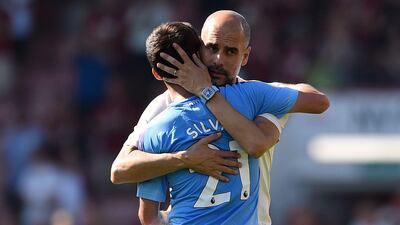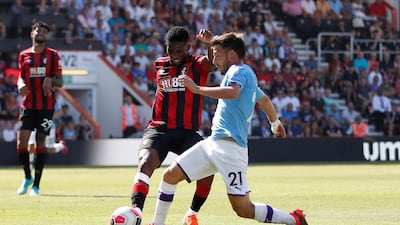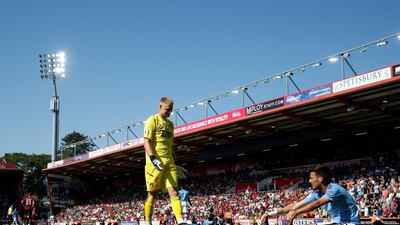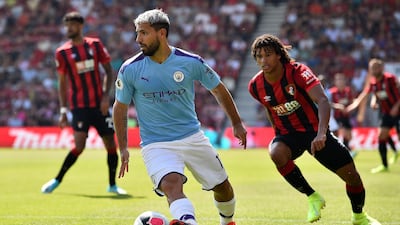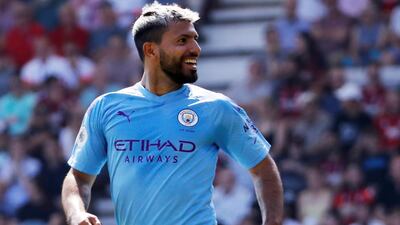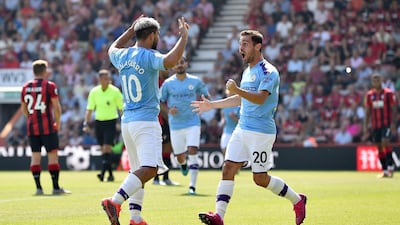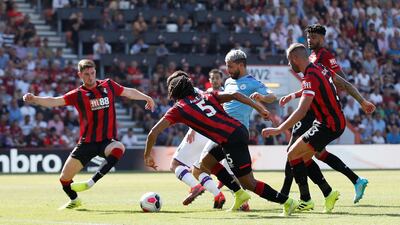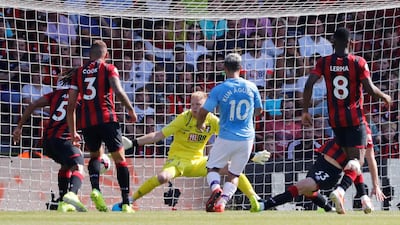Pep Guardiola raised the subject of football’s dominant duopoly. It was Friday, when the Manchester City manager was looking forward to Sunday’s game at Bournemouth, when he dropped the names of Lionel Messi and Cristiano Ronaldo into the conversation.
City, he said, did not have anyone who scored 50 or 60 goals a season like Messi and Ronaldo. It was a sign of the way they have distorted expectations and redefined expectations because on Sunday Sergio Aguero scored the 400th goal of his career for clubs and country.
Even Aguero himself was taken aback to discover that. In a world where Messi and Ronaldo are closing in on 700 – 698 and 689 respectively – and Zlatan Ibrahimovic, a man with an acute awareness of his own claim to greatness, has 525, his haul is overshadowed, a skyscraper amid still taller buildings.
Perhaps in a different era or another context, Aguero’s exploits would seem more remarkable. Manuel Pellegrini used to argue that only Messi and Ronaldo ranked above him among current players. Guardiola, who has occasionally omitted City’s record scorer and who has a pronounced preference for passers, may disagree.
But consider Aguero’s quadruple hundred in comparison with the totals of great goalscorers from various generations. Davor Suker got 287 goals, Marco van Basten 301, Mario Kempes 320, Gonzalo Higuain and Hristo Stoichkov 326, Gary Lineker 329, Jurgen Klinsmann 331, Denis Law 333, Karl-Heinz Rummenigge 338, Alessandro del Piero 343, Gabriel Batistuta 352 and Ruud van Nistelrooy 384.
They are fine company to keep and by the end of 2019, the Argentine will surely have passed Alan Shearer (409), Thierry Henry (411) and the Brazilian Ronaldo (414). He may spend autumn leapfrogging legends.
Every career is different, of course, and some goals feel easier. Aguero started early, debuting in the Argentina top flight at 15. He has spent his prime playing for a particularly creative City team. Yet he has also played in top leagues and displayed remarkable levels of consistency; if not delivering a half-century of goals a year, as Guardiola mentioned, he has scored at least 28 in six successive seasons, despite injuries. The last time he got under 17, he was 18. By their very nature, predators tend to score goals that do not always stick in the mind. The pragmatism of penalty-box poaching acts as a deterrent to the spectacular. It is why the numbers are a useful guide.
Some goals matter more than others and Aguero has comparatively few in finals. Those in his country’s colours have been a regular source of frustration. He will probably end his career without winning the World Cup and may finish it without lifting the Copa America or the Champions League. His achievements are manifold, but they are not the sort that earn individuals the biggest prizes. Not in the era of Messi and Ronaldo, anyway.
His definitive goal remains the one City fans cherish most, the inch-perfect illustration of a predatory instinct and precise finishing – very few forwards find the corner of the net as often – that, in the 94th minute of the final game of the season, won them a first league title in 44 years. Aguero was a City great the moment he defeated QPR in 2012.
Aguero’s quicksilver style, his low centre of gravity, his ability to dart into gaps and finish with unerring accuracy have often prompted Argentina’s World Cup-winning manager Cesar Luis Menotti to compare him to Romario. The Brazilian celebrated scoring 1,000 goals, while admitting that tally included some in youth-team, friendly and testimonial games.
Even without making such spurious claims, Aguero, at 31, has the time to bring up 500. Peers have got more, but a status as one of his generation’s greatest goalscorers should already be secure.
